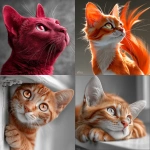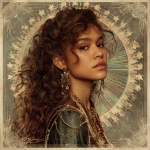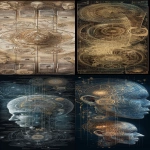Explore the Best AI Image Gallery

Ethics of AI-Generated Media: Navigating the New Creative Frontier
The advent of artificial intelligence (AI) has transformed various industries, and the creative sector is no exception. AI-generated media is revolutionizing creativity, providing tools that artists, designers, and content creators can use to expand their artistic horizons. However, with great power comes great responsibility. Understanding the ethical implications of AI-generated media is essential to navigate this uncharted territory.
The Impact on the Creative Industry
AI-generated media is reshaping the landscape of creative expression. Artists now have the ability to collaborate with AI systems to produce unique pieces of art, music, and written content. These collaborations can enhance creative capacity, allowing for rapid prototyping, exploration of new styles, and the merging of different art forms.
One prominent example is the use of generative adversarial networks (GANs) in visual art. These AI models can create stunning images that mimic different artistic styles. Artists like Refik Anadol and Mario Klingemann are already harnessing these tools to produce innovative work that pushes the boundaries of human creativity. However, the accessibility of such technology raises questions about authenticity and originality, prompting discussions on who truly holds the creative credit.
Potential Uses of AI in Media
The applications of AI-generated media go far beyond the arts. Here are a few pivotal areas where AI is making a significant impact:
- Advertising: Brands are utilizing AI to generate hyper-targeted content for marketing campaigns, creating personalized ads that resonate with specific demographics.
- Gaming: Game developers are leveraging AI to create dynamic environments and interactive narratives, enhancing the player's experience and engagement.
- Film and Television: AI tools are being used in scriptwriting, casting, and even editing, allowing creators to streamline their workflows and focus more on the storytelling aspects.
- Content Creation: AI writing assistants can help bloggers, journalists, and authors draft articles quickly, ensuring that the essence of human expression is always at the forefront.
Ethical Considerations
As AI-generated media continues to evolve, several ethical concerns need to be addressed:
- Copyright and Ownership: One major question revolves around copyright laws. When AI creates artwork, who owns the rights? The developer, the user, or the AI itself? These questions necessitate reexamining established copyright laws to adapt to the complexities of AI-generated content.
- Authenticity: If a piece of artwork is created by AI, does it hold the same value as human-made creations? This discussion touches on the essence of creativity and how we perceive art.
- Bias and Representation: AI systems learn from existing data. If that data is biased, the resulting media can perpetuate stereotypes and inadvertently reinforce societal inequalities. Developers must be vigilant about the datasets they use, ensuring diverse representations are included.
- Impact on Employment: As AI tools become more prevalent, there is ongoing concern about job displacement within creative fields. While AI can assist and improve creativity, the fear that it may replace human jobs cannot be ignored. Finding a balance between technology and human talent is crucial.
Future Trends in AI-Generated Media
The future of AI-generated media is promising, with ongoing advancements that will likely provide even more sophisticated tools for creators. Future trends may include:
- Greater Customization: AI tools will become increasingly personalized, learning individual user preferences to produce customized media that reflects their unique style.
- Enhanced Collaboration Tools: AI platforms may provide seamless collaboration features, allowing multiple creators to work together regardless of geographic location and artistic discipline.
- Integration into Daily Life: As technology becomes more sophisticated, we may see AI-generated content becoming part of our daily interactions, from virtual assistants producing recommendations to auto-generated news articles based on user preferences.
- Sustainability and Ethical AI: As ethical considerations become more prominent, the demand for sustainable and responsible AI practices will grow, leading developers to invest in training technologies that prioritize ethical guidelines.
Conclusion
A comprehensive understanding of AI-generated media ethics is essential as we continue to explore its vast potential and implications. Striking a balance between innovation and ethical responsibility will dictate how these creative tools evolve, ultimately enriching human expression while respecting the values and rights associated with it. Ongoing dialogue among artists, developers, legislators, and ethicists is crucial to navigate these waters effectively, ensuring that the future of creativity is inclusive, authentic, and respectful of the diverse fabric of human culture.
](https://images.ai-img.art/thumbnails/150/d912741b1ab16ff573f976b1d875060fed0db91bf03973bae8f91338eb0863a8.webp)



](https://images.ai-img.art/thumbnails/150/0349dd8cf310ed10eba1fc74a6f316b8982c8c2bda7e033d1c1e3dc87d849258.webp)


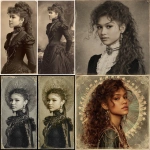
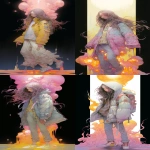



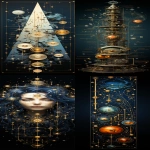


](https://images.ai-img.art/thumbnails/150/6ac2c201a41e2b8724571746d5719f3f25acc52d87a2077f62dcbae44495108e.webp)


](https://images.ai-img.art/thumbnails/150/ddfcd3cfcd96dd8d48f26fc2a0406d5daa1e8ff5c17fd91de6502c7107ca08ac.webp)


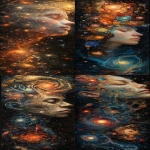


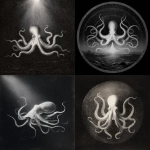
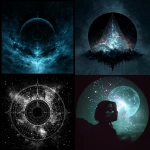

](https://images.ai-img.art/thumbnails/150/99160160c478b524ba92aa139b5b6aef0be4f3368720294c1dc3fe8fc4cbdd90.webp)


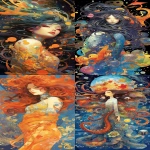

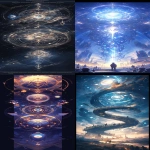

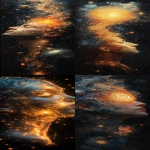
](https://images.ai-img.art/thumbnails/150/c567a1358478083ae41a0cfe6091474ff06e613a84b6c29ca3a26beb2bd76142.webp)

